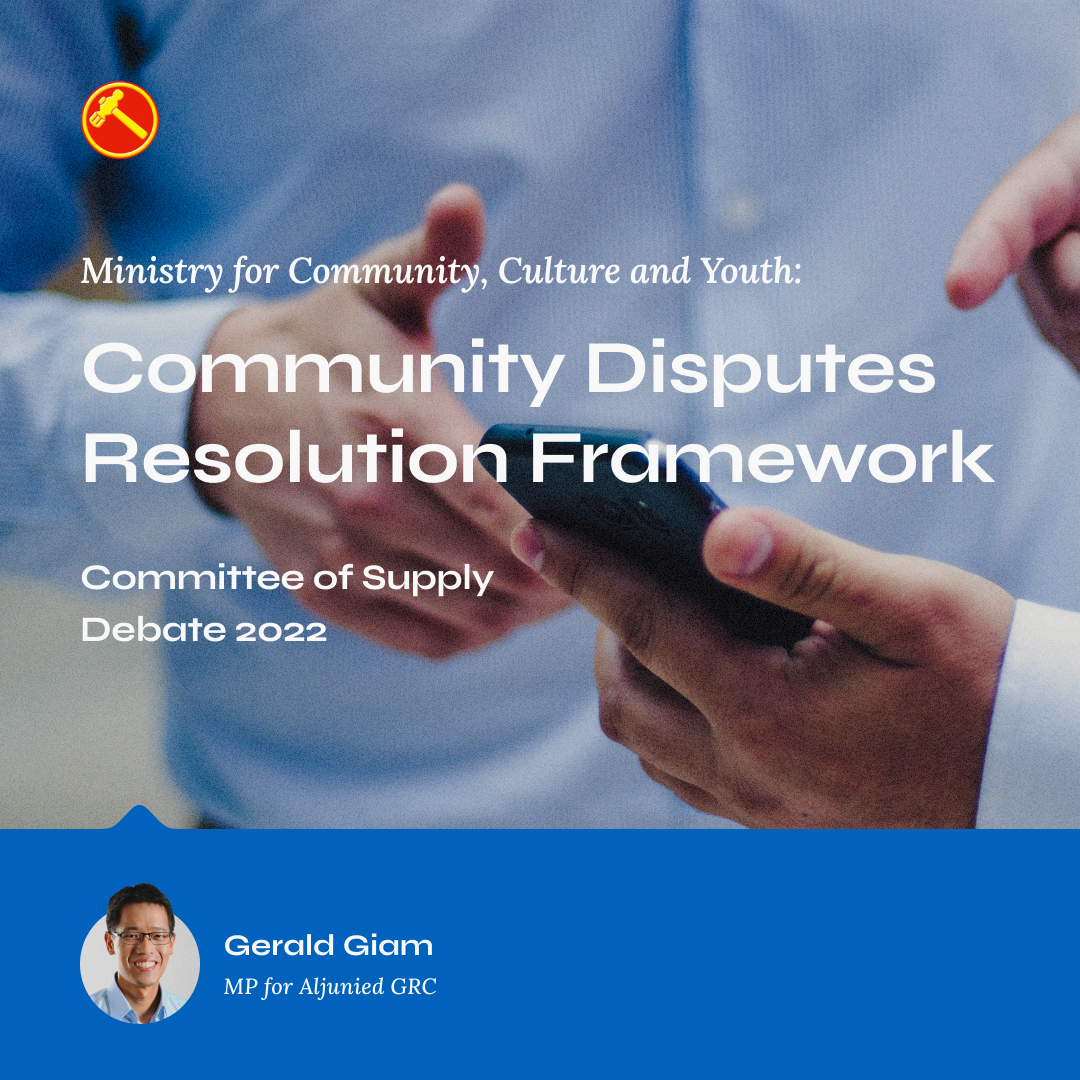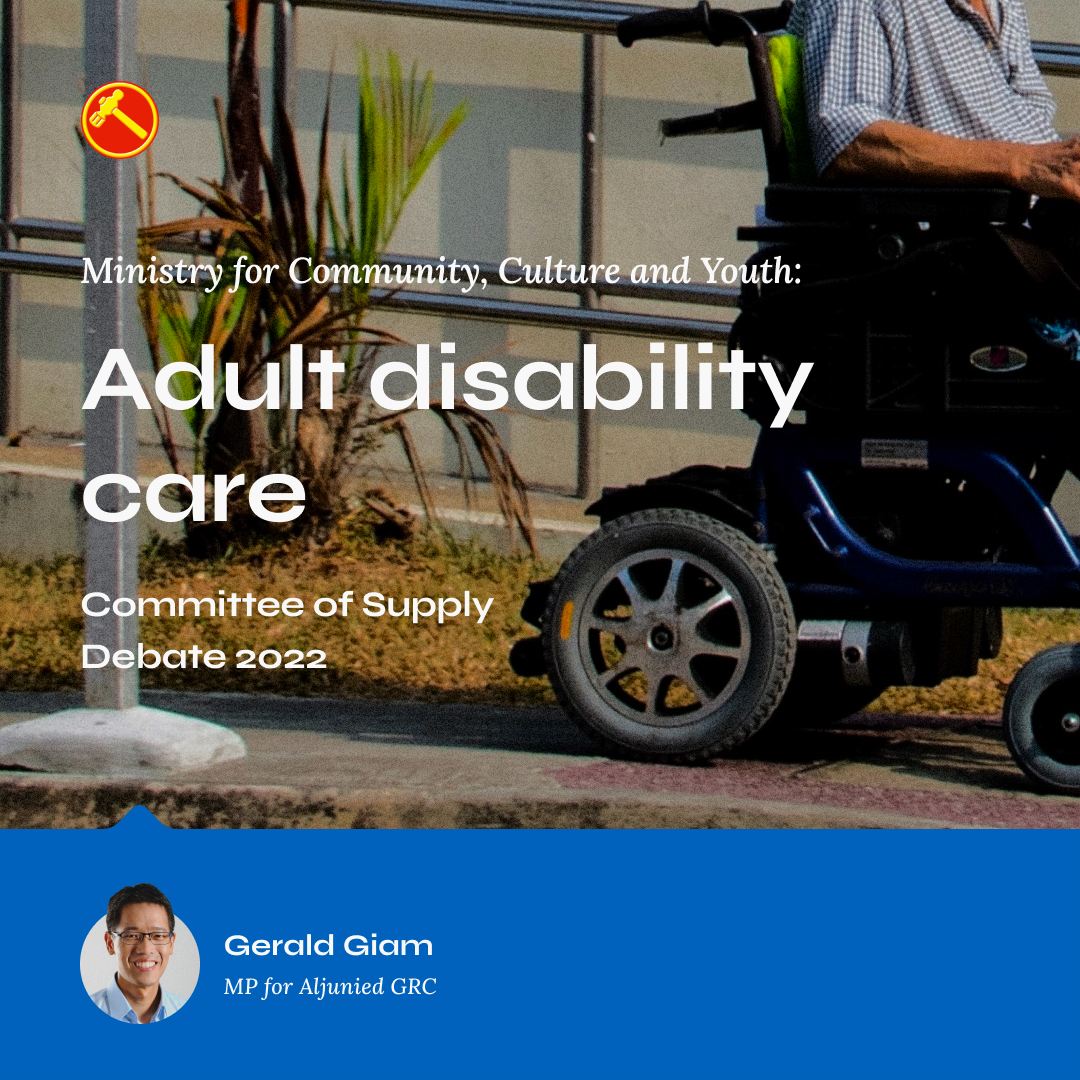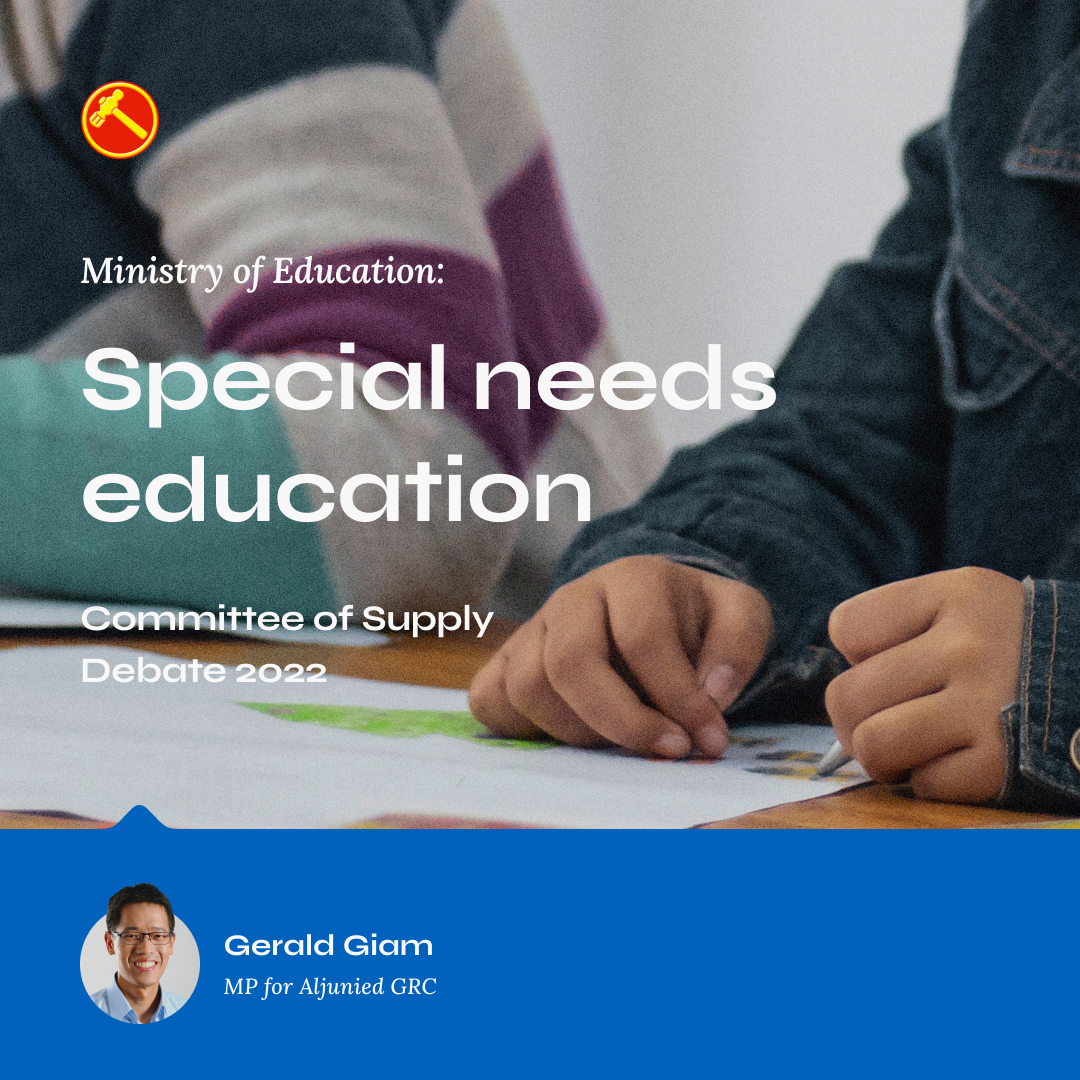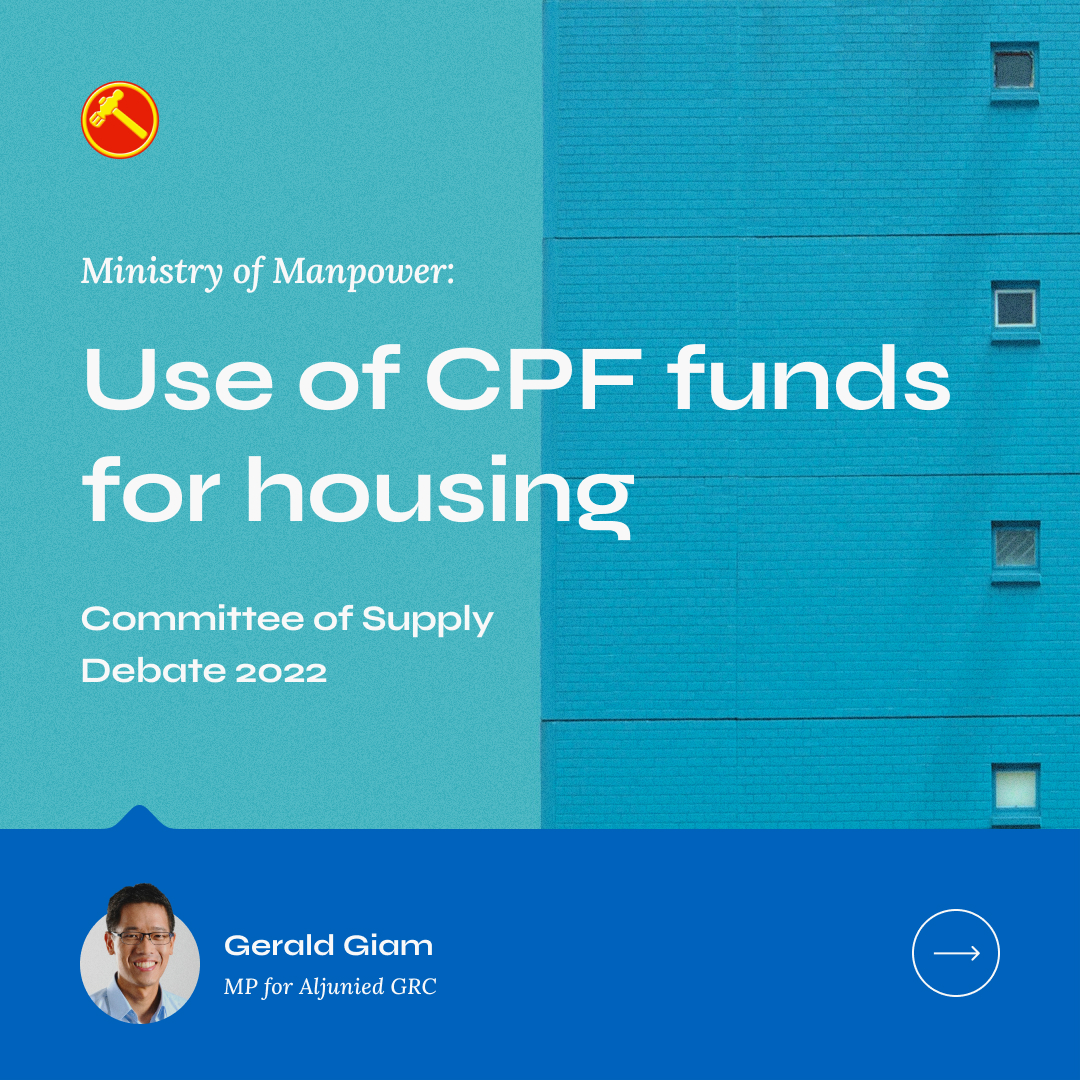I would like to seek the Minister’s update on the review of the Community Dispute Management Framework, which commenced before last year’s COS.
Can the Minister share who the members of the inter-agency committee conducting this review are, and when the review will be completed?
How many mediators does the Community Mediation Centre (CMC) currently have and is this sufficient to manage their workload?
I have met residents who have a vexing dispute with their neighbours but are unwilling to let me refer them for mediation, because they know their neighbour will not turn up for the session. Of the average of 735 cases per year registered at the CMC, 70% did not progress to mediation, mainly because one or both parties declined or did not respond to the invitation to mediate.
To improve the take up rate of mediation, could the Ministry consider these suggestions:
First, once the CMC assesses a case to be suitable for mediation, can the attendance of both parties be made compulsory?
Second, if the dispute eventually goes to the Community Disputes Resolution Tribunal (CDRT), can the Tribunal be allowed to draw an adverse inference from their non-attendance? This potential penalty should be made clear to respondents when the invitation to CMC is served.
Next, I have received feedback from residents about the difficulty they face in filing CDRT evidence. For example, they need to save their audio or video recordings on a CD-ROM or DVD. Most people nowadays don’t have a CD-ROM burner in their home.
Can the CDRT update its processes to allow evidence to be uploaded on a web portal instead and to make the whole process more user friendly for the layman?
My final “cut” for the Committee of Supply debate for the Ministry of Culture, Community and Youth, on 10 Mar 2022.








